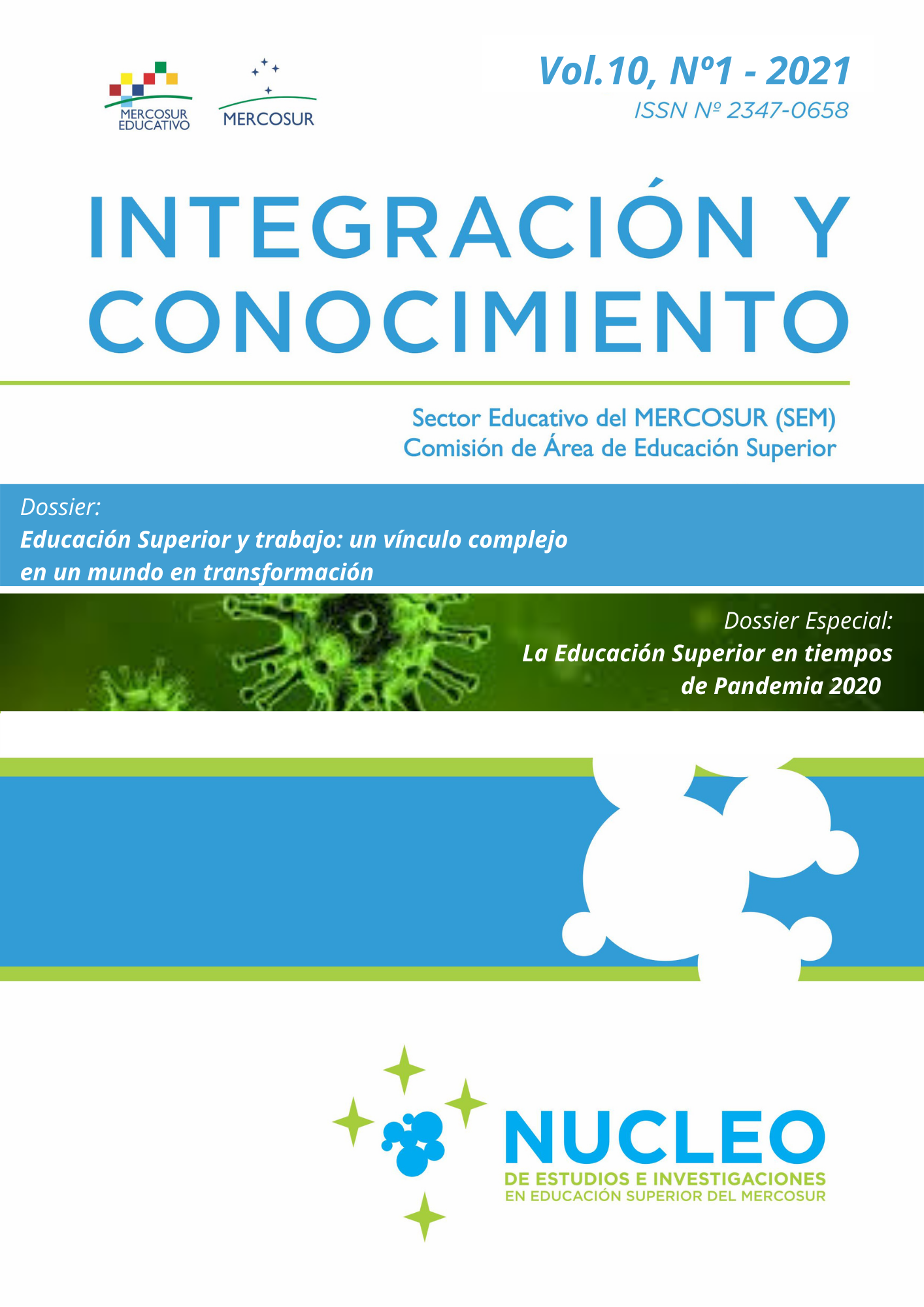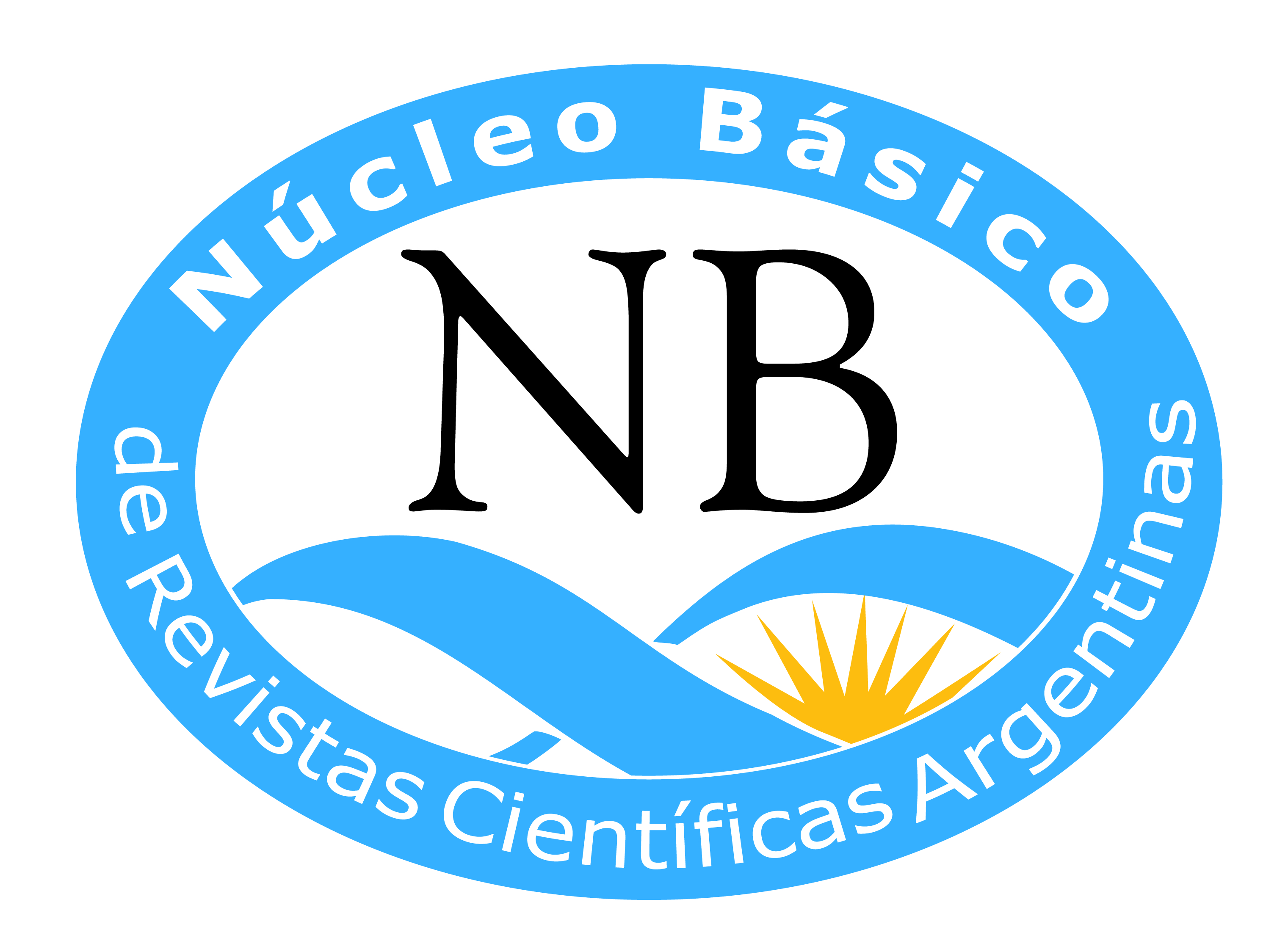PROFESSIONAL INSERTION AND TRAINING IN MECHANICAL ENGINEERING
DOI:
https://doi.org/10.61203/2347-0658.v10.n1.31956Keywords:
study plans; Engineering; insertionAbstract
The study plans of engineering careers in Argentina are being revised due to the new regulations on the scope and activities reserved for degrees and the proposal of new accreditation standards before the National Commission for University Accreditation (CONEAU). It incorporates a learning model centered on the student and or move away from the initial training and the assessment of the engineers regarding their own career path. oriented to the development of competences, both generic of the engineer's graduation (Argentine and Latin American) and specific of each terminal (25 degrees in Argentina). Within this framework, the analysis of the professional insertion of engineers becomes a significant contribution to the debate on the changes in curricula and professional profiles. The purpose of the work is to configure the professional field for Mechanical Engineering in the Metropolitan Area of Buenos Aires in relation to certain economic and technoproductive projects and the imprint of the National Technological University, in addition to investigating the occupational differentiations of the profession. The biographical accounts of the graduates of the Avellaneda Regional Faculty - National Technological University are analyzed with respect to their educational and labor paths that are combined and interrelated in order to understand the changes and differences in the professional paths and the sectors that demand them, as well as their imbrications with the economic, socio-political and professional labor market contexts. From a retrospective approach, it is shown how the professional trajectory will adjust
Downloads
References
CONFEDI (2018). Libro Rojo de Confedi. Recuperado de https://confedi.org.ar/download/documentos_confedi/LIBRO-ROJO-DE-CONFEDI-Estandares-de-Segunda-Generacion-para-Ingenieria-2018-VFPublicada.pdf
Donato, V. (2008). Industria Manufacturera Año 2007: Observatorio Pyme Regional Conurbano Bonaerense. Buenos Aires: Fundación Observatorio Pyme, Bononiae Libris.
Dubet, F. (2014). Repensar la justicia social. Contra el mito de la igualdad de oportunidades. Buenos Aires, Argentina: Siglo XXI Editores.
Fuchs, M. y Vispo, A. (1995). Diagnóstico sobre la demanda futura de ingenieros. Buenos Aires, Argentina: CEPAL.
Formento, C. (2009). Trayectorias emprendedoras de ingenieros mecánicos tecnológicos. En M. Panaia (Coord.), Inserción de Jóvenes en el Mercado de Trabajo. Buenos Aires, Argentina: Editorial La Colmena.
Garaventa, L. (2020). Los nuevos estándares de acreditación de las carreras de Ingeniería en Argentina. Programa institucional de la Facultad Regional Avellaneda de UTN. En M. Panaia (Coord.) Asalarización y profesionalización. Buenos Aires, Argentina: Miño y Dávila Editores.
Guelman, M. y Borda, P. (2013). Documento de Cátedra 89. Los efectos biográficos del método biográfico. Buenos Aires: Universidad de Buenos Aires, Facultad de Ciencias Sociales, Carrera de Sociología.
Hualde, A. (2000). La sociología de las profesiones: asignatura pendiente en América Latina. En E. De la Garza Toledo (Coord.), Tratado Latinoamericano de Sociología del Trabajo. México: Fondo de Cultura Económica.
Iavorski, I. (2015). Mujeres ingenieras, una minoría en las Universidades Tecnológicas. El caso de la UTN-FRA. En M. Panaia (Coord), Universidades en cambio: ¿generalistas o profesionalizantes? Buenos Aires, Argentina: Miño y Dávila Editores.
Katz, J. (2007). Cambios estructurales y desarrollo económico. Ciclos de destrucción y creación de capacidades productivas y tecnológicas en América Latina. Revista de Economía Política de Buenos Aires, 1 (1), 71-92.
Kosacoff, B. (2007). Hacia un nuevo modelo industrial. Idas y vueltas del desarrollo argentino. Buenos Aires, Argentina: Capital Intelectual.
Lanciano, C. y Nohara, H. (1997). Socialización de los ingenieros y construcción de sus competencias: comparación internacional. Calificaciones & Empleo, 16. Buenos Aires, Argentina: PIETTE- CONICET.
Ley de Educación Superior (1995). Ley Nº 24.521.
Mollis, M. (2001). La universidad argentina en tránsito. Buenos Aires, Argentina: FCE.
Panaia, M. (2006a). Trayectorias de ingenieros tecnológicos. Graduados y alumnos en el mercado de trabajo. Buenos Aires, Argentina/Madrid, España: Miño y Dávila editores
Panaia, M. (2006b). Una revisión de la sociología de las profesiones desde la teoría critica del trabajo en la Argentina. Estudios del Trabajo, 32, 121 -165.
Panaia, M. (2015). El desafío de la mujer ingeniera. En M. Panaia (Coord) Universidades en cambio: ¿generalistas o profesionalizantes? Buenos Aires, Argentina: Miño y Dávila Editores.
Panaia, M. y Zambelli, N. (1999). Modelos de institucionalización profesional y organizaciones universitarias. La historia institucional de la UTN y la técnica de los acontecimientos. Documento de Trabajo N° 5. Buenos Aires, Argentina: CEA-UBA.
Picabea, F. (2011). Análisis de la trayectoria tecno-productiva de la industria estatal argentina. El caso IAME (1952-1955) (Tesis de Maestría). Flacso, Buenos Aires. Argentina. Recuperado de Repositorio Digital FLACSO Ecuador: No Entradas en el índice.
Rapoport, M. (2010). Las políticas económicas de la Argentina. Una breve historia. Buenos Aires, Argentina: Planeta.
Rose, J. (2006). Movilidad profesional y formación (Seminarios Intensivos de Investigación). Buenos Aires, Argentina: CEIL-PIETTE CONICET.
Simone, V. (2015). Los ingenieros electrónicos: problemas de inserción y sectores demandantes. En M. Panaia (Coord), Universidades en cambio: ¿generalistas o profesionalizantes? Buenos Aires, Argentina: Miño y Dávila Editores.
Simone, V.; Campetelli, V.; Pagotto, A. y Wejchenberg, D. (2007). Análisis institucional y estudio de las Carreras. Facultad Regional Avellaneda - UTN, Documento de Trabajo Nº 1. Avellaneda, Argentina: Laboratorio MIG -UTN-FRA.
Vatin, F. (2004). Trabajo, ciencias y sociedad. Ensayos de sociología y epistemología del trabajo. Buenos Aires, Argentina: CEIL/PIETTE CONICET -Lumen Humanitas.
Downloads
Published
Issue
Section
License

This work is licensed under a Creative Commons Attribution-NonCommercial-ShareAlike 4.0 International License.
Authors who have publications with this journal accept the following terms:
a. Authors shall retain their copyright and guarantee the journal the right of first publication of their work, which shall simultaneously be subject to the Creative Commons License of Recognition which allows third parties to share the work as long as its author is indicated and its first publication is this journal.
b. Authors may adopt other non-exclusive licensing agreements for the distribution of the published version of the work (e.g., depositing it in an institutional telematic archive or publishing it in a monographic volume) provided that the initial publication in this journal is indicated.
c. Authors are allowed and encouraged to disseminate their work via the Internet (e.g. in institutional telematic archives or on their website) after publication of the article, which may lead to interesting exchanges and increased citations of the published work. (See The Effect of Open Access).



